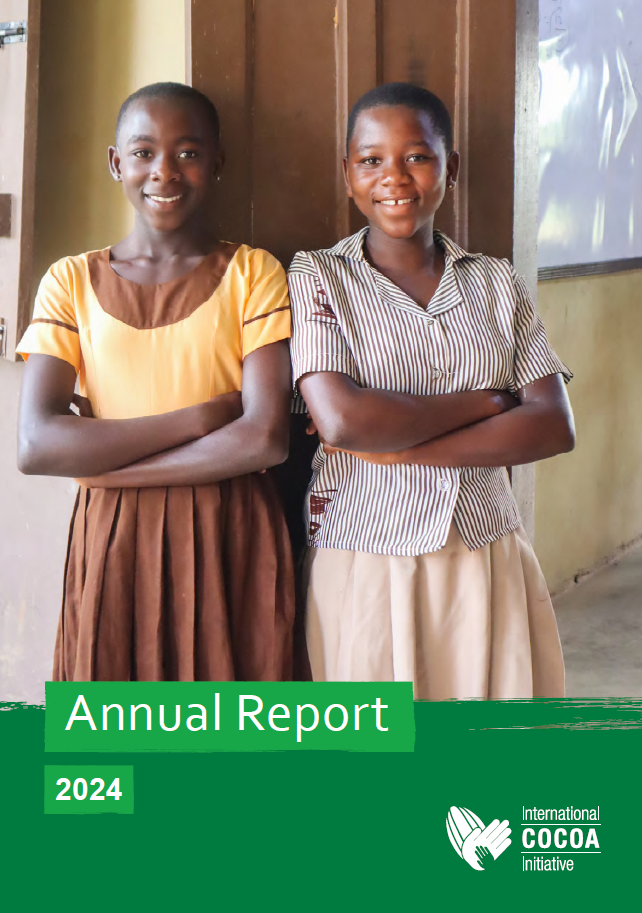Marking this year’s World Day Against Child Labour, the International Cocoa Initiative (ICI) is proud to release its 2024 Annual Report, which captures a year of concerted efforts to advance child protection and human rights in the West African cocoa sector.
Scaling ICI’s collective reach
The report highlights how, through coordinated action with members and partners, ICI enhanced its impact and expanded its reach across the sector.
“In 2024, thanks to the efforts of the collective, ICI and its members covered 1.17 million cocoa-farming households across West Africa with systems designed to prevent and address child labour,” explains ICI Executive Director, Matthias Lange. “This milestone reflects the increasing momentum of ICI members in scaling responsible practices. We remain convinced that collective efforts and collaboration will drive further progress in the sector,” he added.
ICI also welcomed new members in 2024, representing both industry and civil society. “Welcoming four new corporate members — small and large companies — from various regions, including the US, Europe, and West Africa, along with one civil society member, strengthens our collective impact,” explained ICI Director for Policy and Partnerships, Sarah Dekkiche.
She continued, “These additions signify an increasing commitment to addressing child labour and forced labour across value chains, further establishing our position as a trusted partner for collaboration and shared learning.”

Working Better, Together
Progress was also made towards better integration of the various systems used across the sector to monitor and respond to child labour. The alignment of private sector mechanisms, such as the Child Labour Monitoring and Remediation Systems (CLMRS) implemented by many industry actors, with government systems like GCLMS in Ghana and SOSTECI in Côte d’Ivoire, is regarded as critical to delivering more effective and coordinated support to cocoa-growing families.
ICI facilitated the signing of the new 2024–2029 Framework of Action to contribute to the prevention and progressive elimination of child labour in cocoa-growing communities of Côte d’Ivoire and Ghana. The framework was developed by the Child Labour in Cocoa Coordinating Group (CLCCG) which brings together the Governments of Côte d’Ivoire and Ghana, the cocoa and chocolate industry, and the U.S. Department of Labor, and focuses on strengthening monitoring systems, increasing access to education, improving social services and social protection, and supporting household incomes —core pillars in the effort to fight against child labour in cocoa-growing areas.
Focusing on extending its work in new cocoa-producing countries, ICI also engaged in policy dialogue and technical support in countries including Cameroon, Nigeria and the Democratic Republic of the Congo.
“By engaging in new origins, we aim to support more cocoa-growing communities and accelerate the development of sustainable, systemic solutions across the sector,” explained ICI Africa Director, Euphraise Aka.
Learning, Innovating, and Scaling
In 2024, ICI’s holistic approach continued to shape its work, recognising that lasting change requires addressing the full ecosystem surrounding a child. Its learning and research agenda drove innovation throughout the year, with pilot initiatives scaling into broader programmes and generating robust evidence on what works in practice.
“This continued commitment to testing, learning and adapting is vital to achieving long-term, systemic change,” explains Matthias Lange, underscoring ICI’s focus on continuous improvement.
The 2024 Annual Report is a testament to the progress made and the partnerships and collaboration worldwide that make it possible. As the world observes the World Day Against Child Labour, ICI reaffirms its commitment to a future where every child in cocoa-growing communities is protected, supported, and empowered to reach their full potential.
